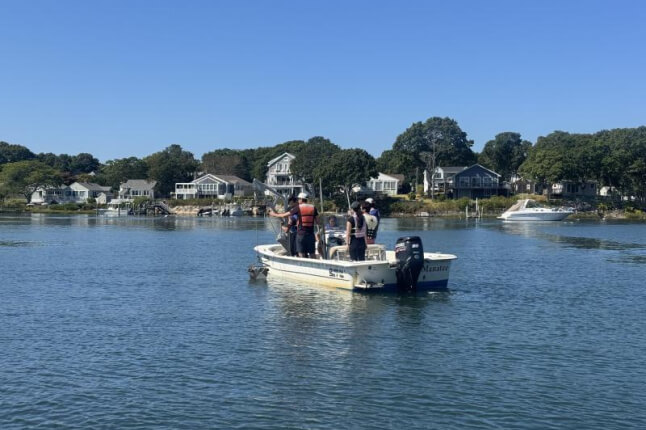News
Umar Azad, S.B. '26
As sea levels continue to rise, coastal communities are already experiencing the negative effects of climate change, such as flooding, hurricanes, and destruction of fishing or other water-based industries. The solutions coastal communities devise to reduce the intensity of those effects not only protect themselves, but also benefit inland communities.
Umar Azad, S.B. ‘26, has spent the last two summers researching how to collaborate with coastal communities, and in particular Indigenous communities, as they adapt to climate change. He’s partnered with the Lowlander Center in Louisiana, which works with coastal and bayou lowland communities to develop climate resilience initiatives.
“These communities are at the forefronts of climate change, reporting environmental degradation, more extreme weather, and intensified heat,” said Azad. “These communities have a lot of valuable knowledge to share, so it's not just a case of what can we do for these communities? It’s also how these communities can also inform wider climate adaptation and resiliency planning for everyone.”
Azad, an environmental science and engineering concentrator at the Harvard John A. Paulson School of Engineering and Applied Sciences (SEAS), first began working with the Lowlander Center in the summer after his second year. He joined the nonprofit through the Mindich Service Fellowship Program, which is run by the Center for Public Service and Engaged Scholarship. The program provides a stipend that allows students to spend 10 weeks working at a nonprofit or public service organization over the summer.
“I've always felt that community is deeply tied to the environment, and addressing a lot of the environmental challenges that we face will mean facing community challenges at the same time,” he said. “The tribal communities that we work with have been observers of these landscapes well before the United States was even founded. The generational knowledge of the tribal elders allows them to detail past conditions and current environmental change, but also how human relationships to the environment has changed too.”
Umar Azad on a boat in Louisiana
Azad’s work with the Lowlander Center has continued to grow over his third and fourth years. After his first summer was over, he joined the Salata Institute for Climate and Sustainability’s Strengthening Communities research cluster, applying for grants that could help fund climate-resilient and sustainable infrastructure such as nature-based solutions, safety hubs for extreme weather events, community composting sites, improved water distribution systems, and solar microgrid installations. He returned to Louisiana this past summer, where his work included building environmental monitoring protocols where he evaluated soil health and water quality, and collected local fish samples to screen for mercury at the Elsie Sunderland Lab at SEAS.
“I connected with the Coalition to Restore Coastal Louisiana, who have really cool programs where they're building reefs from recycled oyster shells to slow down erosion and improve water quality,” He said. “I was speaking to as many people as I could to build a picture of what are the environmental challenges being faced, and what are the best approaches we could take for that.”
Working with the Lowlander Center has become such a key experience for Azad that he’s turned it into his senior capstone project, a requirement for all S.B. engineering students. He’s researching several potential solutions to coastal erosion and climate change, such as developing floating treatment wetlands, which are artificial platforms covered in local plants, which are then placed in the water to act as natural barriers and filters. Whether he goes with the wetlands or another solution, Azad knows that including local and Indigenous communities in the process is the best way to assure success.
“We want to examine ways in which the community themselves can take the lead and take ownership of the stewardship practices that they want to practice,” he said. “The lens through which I understand climate change is through local environments, environmental stewardship and energy transitions. I’m trying to bring all these things together and see where the overlap is and see where interests converge.”
Topics: Climate, Environment, Environmental Science & Engineering, Undergraduate Student Profile
Cutting-edge science delivered direct to your inbox.
Join the Harvard SEAS mailing list.
Press Contact
Matt Goisman | mgoisman@g.harvard.edu



